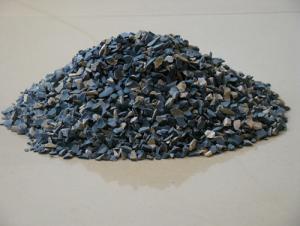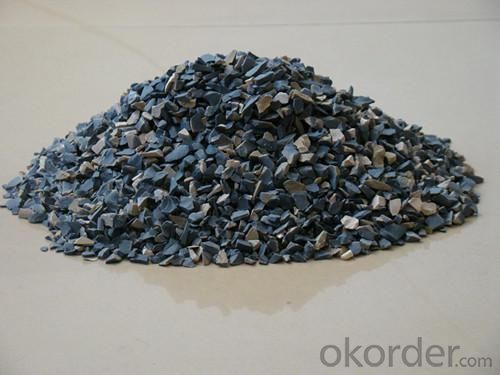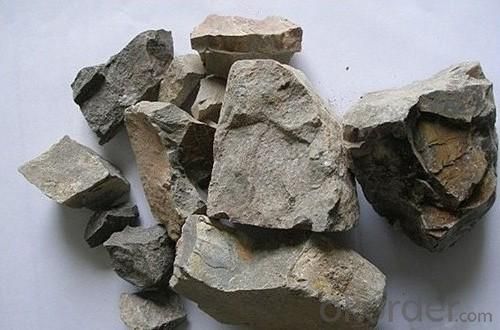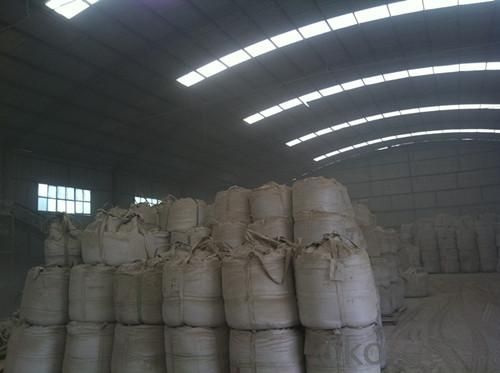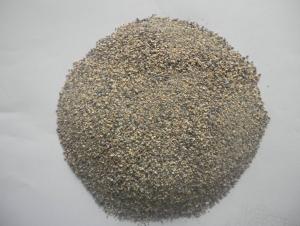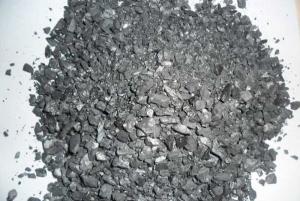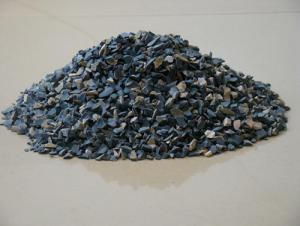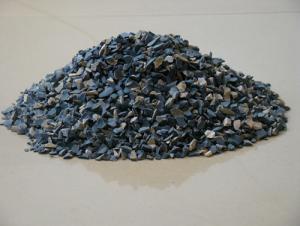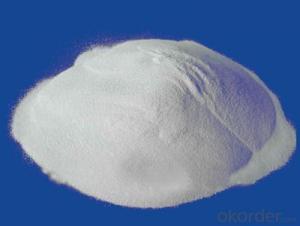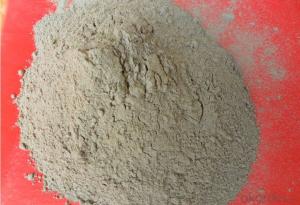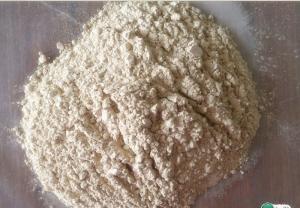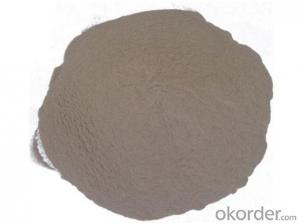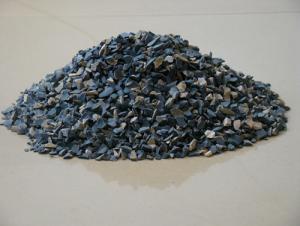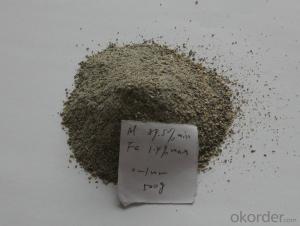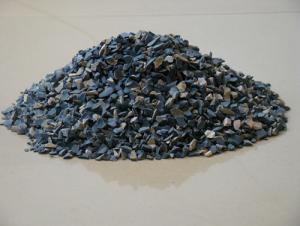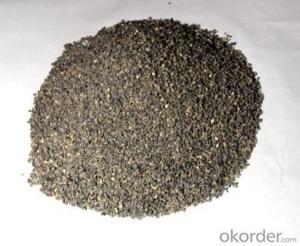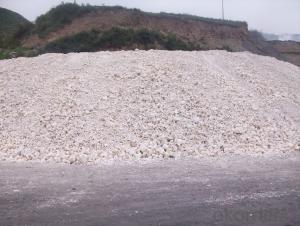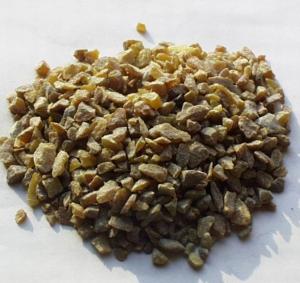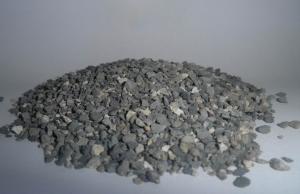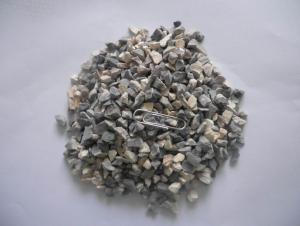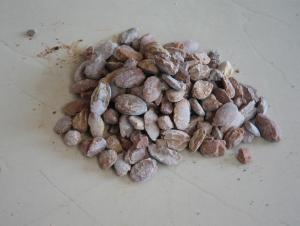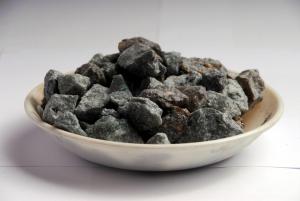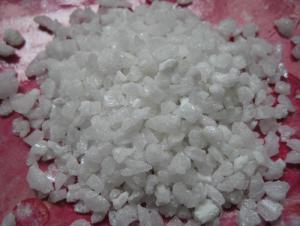Raw Materials for Refractory:Calcined Bauxite Shaft Kiln Al2O3 75%
- Loading Port:
- China Main Port
- Payment Terms:
- TT or LC
- Min Order Qty:
- 50 Metric Ton/Metric Tons m.t.
- Supply Capability:
- 20000 Metric Ton/Metric Tons per Month m.t./month
OKorder Service Pledge
OKorder Financial Service
You Might Also Like
Quick Details of Calcined Bauxite Shaft Kiln Al2O3 75% :
Place of Origin:China mainland
Material:Alumina block
Al2O3 Content(%):75%min
Refractoriness(Degree):1770℃<Refractoriness<2000℃
Shape:Block
Specifications of Calcined Bauxite Shaft Kiln Al2O3 75%:
|
Al2O3 |
75%min | ||
|
Fe2O3 |
3.0%max | ||
|
TiO2 |
4.0%max | ||
|
CaO+MgO |
0.5%max |
|
|
|
K2O+Na2O |
0.3%max |
|
|
|
B.D. |
2.70g/ccm min. | ||
Size:All sizes according to customers’requirements
Standard:Industry standards
Packaging & Delivery of Calcined Bauxite Shaft Kiln Al2O3 75%:
Packaging details:1mt big bag or according to customers’ requirements
Delivery:7-15 work days after the order is confirmed
Competitive Advantages:
High Heat-resistance.
High Purity & Good Quality.
Timely delivery & service
Good company reputation
Competitive Price & Reputable Supplier.
Usage/Applications:
1.Aluminium industry. Used in national defense, aerospace, automotive, electronics, chemical industry, daily necessities, etc.
2. Precision casting. Alumina clinker made after the mould precision casting processed into fine powder. Used in military industry, aerospace, communications, instrumentation, machinery and medical equipment department.
3.Refractory products. High bauxite clinker refractoriness is as high as 1780, chemical stability strong, and good physical properties.
4.Aluminum silicate refractory fiber. With light weight, high temperature resistance, good thermal stability, low thermal conductivity, heat capacity is small and the advantages of resistance to mechanical shock. Used in iron and steel, nonferrous metallurgy, electronics, petroleum, chemical, aerospace, atomic energy, defense and other industries.
5. In magnesia and bauxite clinker as raw materials, add the appropriate binder, used for pouring ladle whole ladle lining has particularly good effects.
6.Manufacture alumina cement, abrasive materials, ceramic industry and chemical industry can be aluminum of various compounds.
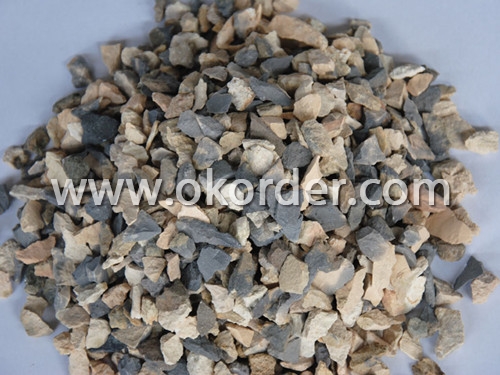
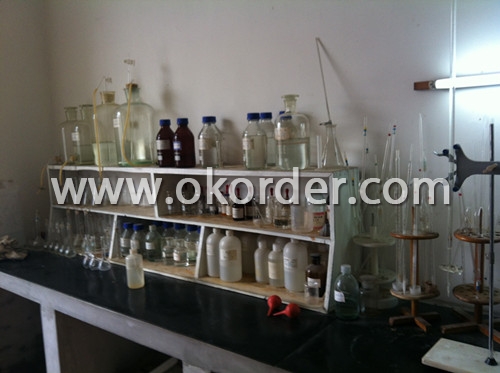
- Q: What is the function of refractory material?
- Refractory is a basic material in the field of high temperature technology. Generally, the refractory is used as structural material or lining to resist high temperature in various thermal equipment and high temperature container. In the iron and steel industry and metallurgy industry, coke ovens are mainly composed of refractory materials. Various refractories that meet the requirements are essential in blast furnace for ironmaking, hot stove, all kinds of steel-making furnaces, soaking furnace and heating furnace. Not only the die casting for molten steel needs lots of refractory materials, but also the continuous casting needs some high-quality refractory materials. Without high-quality refractory materials, external refining is also not impossible to achieve. Statistics show that the steel industry is the sector that needs the most refractory. Pyrometallurgy and thermal processing of ferrous metal also needs refractories. All high-temperature furnaces or lining in construction materials industry or other high temperature industries that produce silicate products such as glass industry, cement industry, and ceramics industry must be constructed with refractory materials. All kinds of roasting funaces, sintering funaces, heating furnaces, boilers, flues, chimneys and protective layers in chemical, power and machinery manufacturing industry need refractories. In short, when some kind of structures, devices, equipments or vessels are used under high temperature, they all should utilize refractory to resist the high temperature because those materials will deform, soften and fuse or will be eroded, scoured or broken due to the physical, chemical, mechanical effects, which may stop the operation, affect the production, contaminate processed objects and impact the quality of products.
- Q: As for fireproofing material rock wool and glass wool, which one is better?
- Rock wool board and glass?wool?board are a kind of new construction thermal insulation material, it's widely applied in construction and has replaced traditional thermal insulation material to some degree. With the gradually deepening study of rock wool board, glass wool board, we can find that these insulation materials have advantages in many aspects but there are also many deficiencies, particularly there exists a lot of controversy about the impact on the human body. The production process of rock wool board and glass?wool?board usually includes: after melting in high temperature of rock or glass, inorganic fiber is produced by high-speed centrifugation equipment, and at the same time add binder,dust?laying?oil,silicone oil at certain proportion, then produce sheet material according to different requirements. It has good thermal insulation properties, mechanical?property, sound absorption characteristics, belong to incombustible?material and is cheap. In general, insulation, security and economy should not be contradictory, three aspects should be taken into account, balanced chosen and developed. Rock wool board and glass wool board and other such materials should be properly selected and applied to the appropriate structure, so that the choice of material will play their strengths and avoid their weaknesses.
- Q: Why does refractory need to add coarse firstly and then add fine aggregate?
- Oh, adding coarse aggregate first is to select good material to make aggregate, and the rest cna be made into fine aggregate. Because if it contains impurities, once being sintered, the appearance will be affected, but fine aggregate does not have this impact.
- Q: How much is the duration of fire resistance of the porous brick shale?
- The duration of fire resistance of the porous brick shale could reach 1,580℃—1,770℃. It is predominantly applied in coke oven masonry and building, glasses, porcelains, carbon calciner, and the vault of thermal furnuces of refractory bricks as well as other load-bearing elements, and high temperature bearing parts of cowper stove. But it should be aware that it can’t be used in thermal equipment below 600℃ and with large variation of temperature.
- Q: How to make fire resistant materials for building stoves
- Legend of the old version has been upgraded, or can not enter the server, is not legend stopped?
- Q: What is the interior fireproof thermal insulation material?
- polystyrene foam board, glass fiber spraying, polyurethane foam, thermal insulation system of inorganic wall. Use "DY" inorganic active thermal insulation material, have small thermal conductivity, large heat storage coefficient, better strength and achieve better thermal insulation and energy-saving effect when used in wall . Wall should definitely not crack and hollow because of high temperature in summer. It doesn't crack and shed because it is influenced by stress during heat expansion and cold contraction in cold winter.
- Q: What are the advantages and disadvantages of new external wall fireproof and thermal inuslation matertials?
- The new external wall fireproof and thermal inuslation matertials have both the advantages and disadvantages. Advantages: 1)Low requirements on the waterproof, weather resistance and other technical indicators. The dry wall and gypsum plastering mortar, etc. can meet the requirements and can be easily obtained; 2) The inner insulation material are separated by the floor, and construct within a height of only a storey , without erecting scaffold ; 3) In the hot summer and cold winter or hot summer and warm winter area, the inner insulation meets the requirements; 4) The glass beads overcome the shortcomings of expanded perlite, like, large amount water absorption, easy powdering, big volumetric shrinkage in the slurry mixing process, easily leading to post-insulation product performance degradation and hollowing, cracking, and also make up for the defects of polystyrene particles organic materials, like, flammable, poor fire performance, producing harmful gas at high temperatures and anti-aging, poor weather resistance, poor workability and large rebound in construction, ect. Disadvantages of external wall insulation : 1) Since the ring beam, slab and column structure would cause thermal bridges, leading a greater heat loss; 2) It is of low intensity, high water absorption, easy to shrink and crack. The insulation system is prone to cracking, leaking or loss and other common quality problems, especially it is easy to crack at the seams, thus being difficult to exsit as long as the building. 3) It is inconvenient for the users to redecorate and hang ornaments; 4) It takes up indoor used space;
- Q: What are the materials of class A fire resistant window?
- Fixed class A fire resistant window should be made up of steel frame, steel casement, and fireproof glass. Fire windows, made up of steel frame, steel casement, and fireproof glass, refers to window that isolate and stop the fire from spreading. Fire window is named according to the main materials of the frame and casement. Window frame is made up of steel and casement wood, vise versa. I hope it is useful.
- Q: What is the fireproofing requirements of external wall thermal insulation materials?
- According to the "building external wall insulation fire barrier zone technical regulations" to be published: it is not less than the level B2. But before the procedure was published, it should be strictly implemented the document, level A is the best, I hope to help you, hope to adopt
- Q: Does anyone knows which company produces the better refractory materials?
- 1, Xinjiang Seekon new material limited liability company: Xishan Street No. 382,Saybagh District 2, Refractory Material Co., Ltd. In Xuyan, Benxi: Near the Sihu Road, Benxi City 3,Benxi Beitai new refractory material factory sales office address: Benxi city Sihu District Liu Toro No. 16
1. Manufacturer Overview
| Location | Tianjin,China |
| Year Established | 2006 |
| Annual Output Value | Below US$1 Million |
| Main Markets | Mid East;Western Europe;Japan;North America |
| Company Certifications | The Authentication certificate of Quality Management system |
2. Manufacturer Certificates
| a) Certification Name | |
| Range | |
| Reference | |
| Validity Period |
3. Manufacturer Capability
| a) Trade Capacity | |
| Nearest Port | Tianjin |
| Export Percentage | 61% - 70% |
| No.of Employees in Trade Department | 50 People |
| Language Spoken: | English;Chinese |
| b) Factory Information | |
| Factory Size: | Above 300,00 square meters |
| No. of Production Lines | Above 5 |
| Contract Manufacturing | Design Service Offered |
| Product Price Range | Average |
Send your message to us
Raw Materials for Refractory:Calcined Bauxite Shaft Kiln Al2O3 75%
- Loading Port:
- China Main Port
- Payment Terms:
- TT or LC
- Min Order Qty:
- 50 Metric Ton/Metric Tons m.t.
- Supply Capability:
- 20000 Metric Ton/Metric Tons per Month m.t./month
OKorder Service Pledge
OKorder Financial Service
Similar products
Hot products
Hot Searches
Related keywords
